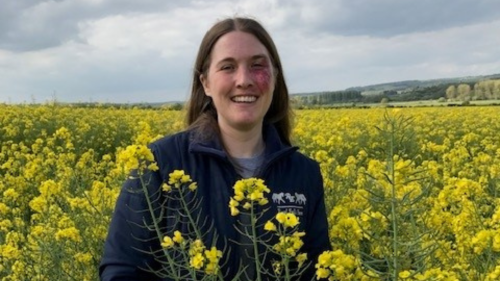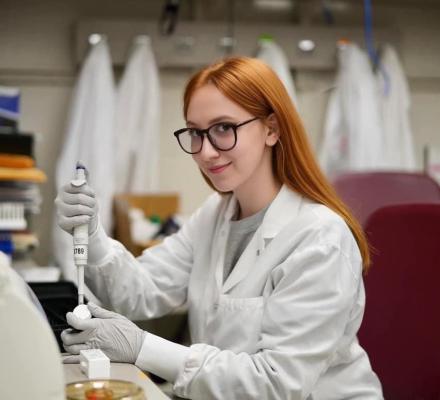
-
Understanding primary immunodeficiency (PI)

Understanding PI
The more you understand about primary immunodeficiency (PI), the better you can live with the disease or support others in your life with PI. Learn more about PI, including the various diagnoses and treatment options.
-
Living with PI
-
Addressing mental health
-
Explaining your diagnosis
- General care
- Get support
- For parents and guardians
-
Managing workplace issues
- Navigating insurance
-
Traveling safely

Living with PI
Living with primary immunodeficiency (PI) can be challenging, but you’re not alone—many people with PI lead full and active lives. With the right support and resources, you can, too.
-
Addressing mental health
-
Get involved

Get involved
Be a hero for those with PI. Change lives by promoting primary immunodeficiency (PI) awareness and taking action in your community through advocacy, donating, volunteering, or fundraising.
-
Advancing research and clinical care
-
Grants
-
IDF surveys
-
Participating in clinical trials
-
Diagnosing PI
-
Consulting immunologist
-
Clinician education

Advancing research and clinical care
Whether you’re a clinician, researcher, or an individual with primary immunodeficiency (PI), IDF has resources to help you advance the field. Get details on surveys, grants, and clinical trials.
-
Grants
Diagnosed with chronic granulomatous disease (CGD) within his first month of life, Brandon Wiehe struggled with inflammatory bowel issues and abscesses as a baby and into his toddler years.

Pained by her son's suffering, and worried that the wrong infection could mean the end of Brandon’s life, his mother Carly Adams made a bold decision – to seek a bone marrow transplant (BMT) for Brandon.
“I decided his quality of life was not acceptable, and I fought to get him to Seattle Children’s Hospital to see an immunologist,” said Carly, who lives in Alaska with Brandon.
Once at Seattle Children’s Hospital, Carly learned that Brandon had the most severe type of CGD, which results in the lowest life expectancy. The specialists recommended a bone marrow transplant based on the high survival rate of other children with CGD who had undergone the procedure.
“The decision to move forward with a transplant or not, knowing the outcome may be bad, was one of the hardest decisions of my life. But, I followed the scientific research, world-renowned doctors, my faith, and my heart. With my family’s and friends’ support, we decided to go forward with the BMT,” said Carly.
Unable to find a bone marrow match for Brandon, doctors opted for donated cells from Brandon’s father, Chris Wiehe. Brandon received his transplant on July 31, 2019 at Seattle Children’s Hospital and the donated cells were engrafted about two weeks later.

Two years post-transplant, Brandon, now 7 years old, attends first grade with his peers, enjoys “approved” playdates, and plays in the backyard pool (he loves to swim). He even celebrated his birthday in April with a small group of friends.
“As he got to play with other kids, having people sing happy birthday to him, opening up presents, the look of joy on Brandon’s face was possibly the happiest experience of my life. That moment made every single hardship in the past worth it,” said Carly.
Though the transplant allowed Brandon to emerge from isolation and deflect life-threatening infections, his recovery and current health are not without challenges.
A multitude of complications – including kidney disease caused by medication to fight a fungal lung infection Brandon had before the transplant – kept him under hospital care for nine months during the transplant procedure. Brandon returned to Alaska in January 2020, and required hospitalization seven times from February to June of 2020, for respiratory syncytial virus (RSV), Clostridioides difficile (C. diff), and graft versus host disease (GVHD).
“His post-transplant life was not what we expected at all and his complications and illnesses since returning home were persistent,” explained Carly. “Brandon would not even get out of bed during the summer of 2020. His tummy hurt him constantly, and he was totally defeated both mentally and physically.”
In June 2020, an emergency medical crew airlifted Brandon back to Seattle Children’s, where doctors worked to control the GVHD, which attacked Brandon’s digestive system. Left unchecked, it could have resulted in Brandon needing a colostomy bag.
To ease the bowel disease, doctors prescribed infliximab infusions every six weeks for Brandon, which worked, and he returned to Alaska in August 2020.

“This part of life was much more difficult than the bone marrow transplant itself. But Brandon quickly improved, and I credit the treatment plan developed by his amazing Seattle Cancer Care Alliance (SCCA) and Seattle Children’s Hospital teams,” said Carly.
Brandon still requires the infliximab infusions and undergoes colonoscopies to remove fast growing and numerous polyps every six months. The polyps could block his intestines, so the procedures are essential. He also takes blood pressure medicine, Bactrim (antibiotic prophylaxis), and antiviral and antifungal drugs.
“Though the road is much less bumpy, it is not straight and narrow. But these complications are manageable,” said Carly.
Carly credits her friends and family with aiding her in caring for Brandon and being there for emotional support during the transplant journey. She also found a community through IDF when she attended a conference in Florida before Brandon’s transplant. For the first time in her life, she met other families whose children have CGD.

Now, Carly tries to help other families living with CGD through platforms like Facebook.
“Our CGD community on Facebook has been my sounding board, where I go for advice, where I offer my experiences to other CGD families, and where we support each other when no one else understands what a CGD life is really like. I highly recommend joining one or more of these groups,” said Carly.
“I have people from around the world who contact me and ask my opinion and ask what they should do in this scenario and ask for the research reports from my doctor.”
Carly urges families to ensure that their doctors have experience with CGD and work at hospitals that perform transplants for children with the condition. She also stresses that doctors must communicate with one another about treatment.
“There are doctors that have a difference of opinions with the care of CGD, but make sure you also know all sides to make the best decision for your child,” she said.
Ultimately, parents must consider a child’s health, comfort, and happiness when choosing a treatment for CGD, said Carly.
“Quality of life is extremely important for any child with CGD and balancing that with the risks and unknowns of the disease or the treatments or the decision to seek a transplant is terrifying. But we will choose quality of life every time,” she said.

View Brandon’s Facebook page and Instagram page.
Visit IDF’s Facebook page to join an IDF group, including one specifically for those affected by CGD, or join IDF Friends, a forum set up by the Immune Deficiency Foundation.
Related resources
Sign up for updates from IDF
Receive news and helpful resources to your cell phone or inbox. You can change or cancel your subscription at any time.





The Immune Deficiency Foundation improves the diagnosis, treatment, and quality of life for every person affected by primary immunodeficiency.
We foster a community that is connected, engaged, and empowered through advocacy, education, and research.
Combined Charity Campaign | CFC# 66309




